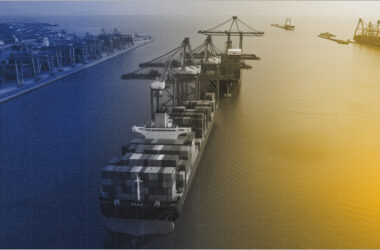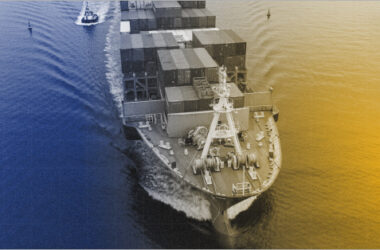Marine Cargo Insurance is an essential component of the shipping industry, protecting cargo owners against the potential loss or damage of their goods during transit. One important aspect of this insurance is the average clause. It is a complex provision that can vary significantly depending on the specific terms of the insurance policy.
Understanding the particular average clause is essential for cargo owners and insurers alike, as it can have a significant impact on the cost of insurance premiums and the level of protection provided to cargo during transit. This article will explore the key features of the particular average clause in Marine Cargo Insurance, including its purpose, scope and limitations. By providing a clear and concise overview of this important provision, readers will be better equipped to navigate the complex world of Marine Cargo Insurance and protect their goods during transit.
Understanding the Particular Average Clause in Marine Cargo Insurance
Businesses need to understand the particular average clause and ensure that their insurance policy covers them adequately. Failure to do so could result in significant financial losses in the event of partial loss or damage to the cargo. The Particular Average Clause specifies how a Marine Insurance Policy covers the expenses incurred due to partial damage or loss of cargo during transit. As per the particular average clause, the insurer will only pay out if the loss or damage exceeds a certain percentage of the total insured value of the cargo. This percentage is usually set at 3% or 5% depending on the policy terms.
The following are some essential points to keep in mind regarding the Particular Average Clause:
- The clause applies to partial losses or damages to cargo that are not covered under the General Average Clause.
- The clause covers damages caused by natural calamities such as storms, lightning, and thunder, among others.
- It also covers damages due to accidents such as collisions, grounding, and other types of accidents that are not caused by the negligence of the carrier.
- The clause does not apply to damages caused by the inherent nature of the goods, such as spoilage or decay.
- The insurance company will pay the insured party for the actual loss or damage incurred, subject to the terms and conditions of the policy.
It is essential to note that the Particular Average Clause is not a standard clause and may vary from one policy to another. Therefore, it is crucial to read and understand the terms and conditions of the policy before signing up for it.
Types of Losses Covered under Particular Average Clause
Under the Particular Average Clause in Marine Cargo Insurance, losses that occur during the transit of goods are covered. These losses are usually divided into two categories: total losses and partial losses.
Total losses occur when the entire shipment is lost or damaged to the extent that it cannot be delivered to the consignee. In such cases, the entire value of the shipment is paid out to the insured party.
Partial losses occur when only a portion of the shipment is lost or damaged. This can be further classified into two types of losses:
1. Particular Average: This type of loss occurs when the damage is caused by a specific peril, such as fire, collision, or theft. In such cases, the insurer will only pay for the loss or damage caused by the particular peril.
2. General Average: This type of loss occurs when the entire shipment is put at risk to save the ship or cargo from a common danger. For example, if the ship is in danger of sinking and cargo is jettisoned to save the ship, the cost of the jettisoned cargo is shared by all parties involved in the voyage.
In addition to the above, losses caused by natural disasters such as storms, floods, and earthquakes are also covered under the Particular Average Clause. However, losses caused by war, strikes, and riots are typically excluded from coverage.
Exceptions and Limitations of Particular Average Clause
The particular average clause in Marine Cargo Insurance covers partial losses that result from damage or expenses incurred during transportation. However, there are certain exceptions and limitations to this clause that should be considered before purchasing Marine Cargo Insurance.
Percentage Deductible: Many Marine Cargo Insurance Policies include a percentage deductible. This means that the insured is responsible for bearing a certain percentage of the loss before the insurance company compensates a claim. For example, if there is a 3% deductible and the loss is Rs. 100,000, the insured would bear the first Rs. 3,000 of the loss, and the insurance would cover the remaining Rs. 97,000.
Exclusions for Certain Causes of Loss: Some Marine Cargo Insurance Policies may exclude coverage for specific causes of loss, such as inherent vice (the natural characteristics of the goods that make them susceptible to damage), delay, insufficiency of packing, and inadequate stowage.
Unseaworthiness or Unfitness: If the loss or damage is a result of the unseaworthiness or unfitness of the vessel or carrier, the insurer may deny coverage. The insured must ensure that the vessel carrying the goods is in suitable condition for the intended journey.
Inadequate Packaging: Insurers may exclude coverage for losses caused by inadequate packaging. The insured is usually expected to take reasonable measures to ensure that the goods are adequately packed to withstand the normal rigours of the transportation process.
Delayed Shipments: Some policies may exclude coverage for losses due to delay, emphasizing that the insurance is intended to cover actual physical loss or damage to the goods.
Concealed Damage: If the damage to the goods is not immediately apparent upon delivery and is discovered later, there may be limitations on the coverage. Timely reporting of any loss or damage is typically a requirement for coverage.
Case Studies: Application of Particular Average Clause
The particular average clause in Marine Cargo Insurance is a crucial aspect of the policy, as it determines the amount of compensation that the insured party will receive in case of partial loss or damage to the cargo. Here are some case studies that illustrate the application of the particular average clause:
Case Study 1: Damage to a Container of Electronics
A container of electronics was being transported from China to the UK, and during the voyage, the ship encountered heavy weather conditions. As a result, the container suffered partial damage, and some of the electronic items were destroyed. The insured party filed a claim under the particular average clause, and the insurer agreed to compensate for the partial loss of the cargo.
Case Study 2: Loss of Cargo Due to Fire
A ship carrying a consignment of chemicals caught fire, and the cargo was completely destroyed. However, the particular average clause in the Marine Cargo Insurance Policy only covered partial loss or damage to the cargo. Therefore, the insured party was not entitled to any compensation under the policy.
Case Study 3: Damage to Cargo During Loading and Unloading
During the loading and unloading of a container of machinery, some of the items were damaged due to mishandling. The insured party filed a claim under the particular average clause, and the insurer agreed to compensate for the partial loss of the cargo.
Case Study 4: Damage to Cargo Due to Improper Packaging
A container of fragile items was not properly packaged, and as a result, some of the items were damaged during the voyage. The insurer denied the claim under the particular average clause, as the damage was caused due to the insured party’s negligence in packaging the cargo.
Conclusion
From the discussion above, we have seen how the Particular Average Clause protects the interests of both the insurer and the insured and ensures that the losses are shared proportionally. It is important to note that the clause only covers losses that are caused by specific perils such as fire, collision, and grounding. The insured must prove that the loss was caused by one of the specified perils for the claim to be valid. Furthermore, the insured must take reasonable measures to prevent or minimize the loss. Failure to do so may result in the claim being rejected.
Frequently Asked Questions
- What is the difference between Particular Average and General Average?
The Particular Average clause covers partial losses or damages to cargo caused by a specific peril, while the General Average clause covers losses or damages that are intentionally incurred for the common benefit of all parties involved in the shipment, such as jettisoning cargo to lighten a ship in distress.
2. What is the General Average clause in Marine Cargo Insurance?
The General Average clause in Marine Cargo Insurance is a provision that requires all parties involved in a shipment to share the cost of losses or damages that are intentionally incurred for the common benefit of all parties, such as jettisoning cargo to lighten a ship in distress.
3. What is a shut-out cargo in Marine Insurance?
Shut-Out cargo in Marine Insurance refers to cargo that is left behind at the port of loading due to overbooking or other reasons beyond the control of the shipper or the carrier. It is also known as Rolled cargo or Overcarried cargo.








